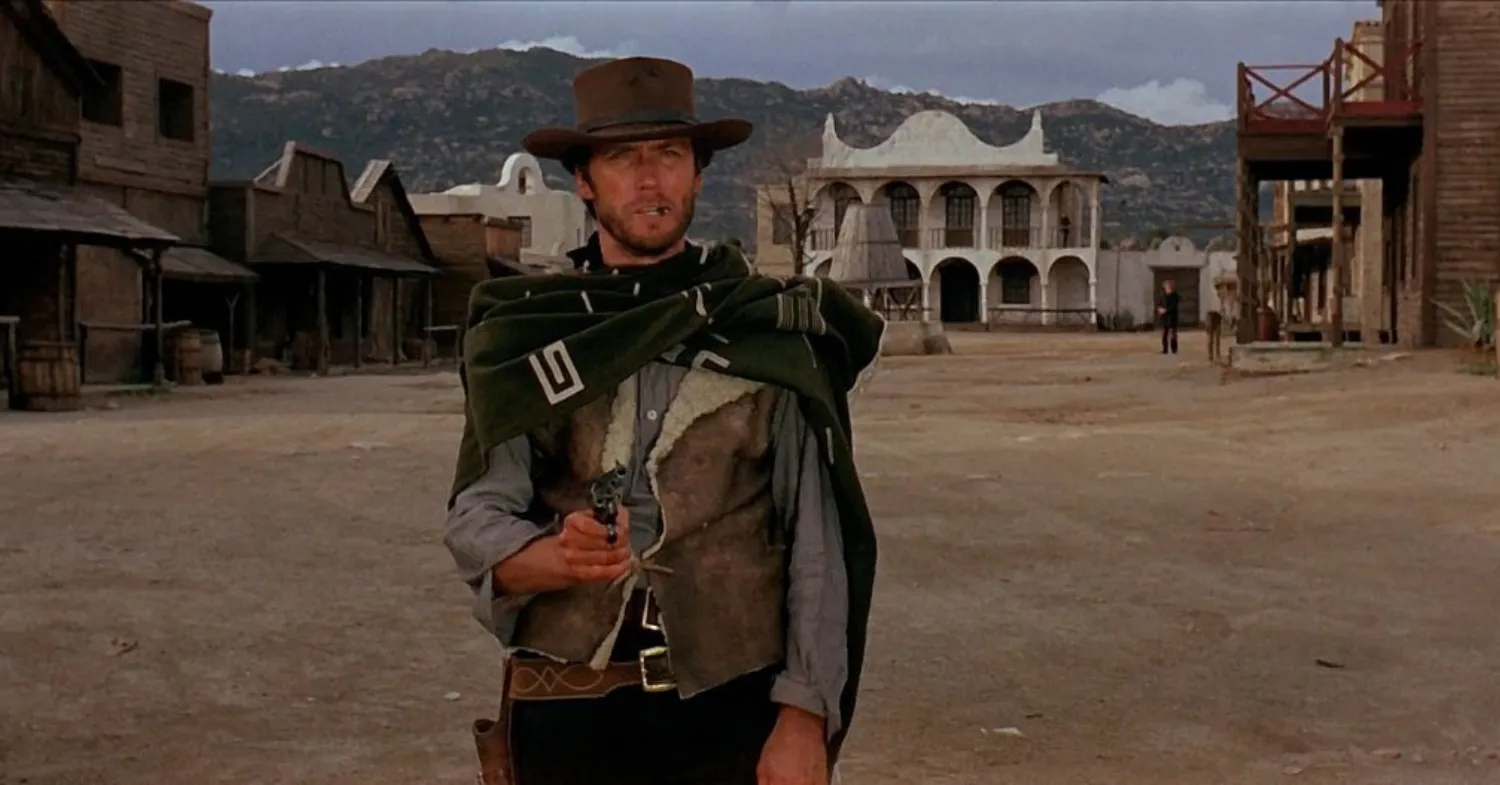Even compared to modern western movies with extensive budgets, A Fistful of Dollars feels highly influential in terms of style and design. While Sergio Leone finds the pitch perfect tone for his storytelling ideas, Clint Eastwood turns in one of his best performances. A landmark spaghetti western from 1964.

Starting off Sergio Leone’s Dollars (or Man with No Name) Trilogy strong, A Fistful of Dollars drops Clint Eastwood into, essentially, no mans land. There’s nothing really going on in this Mexican village of San Miguel that’s separated by two families with a long lineage of disdain, to the point that the entire town is at the beckoning of one or the other – only split by a desolate bar that Eastwood’s offhandedly named main character Joe is able to find solace at.
A Fistful of Dollars is a cleverly designed and skillfully executed Western that takes on a simple premise. Sergio Leone and Clint Eastwood are a match made in heaven, and I can only imagine that it gets better in the trilogy from here. I’m a bit glad, though, that they chose to start small-scale with their first film. The movie contains a very few number of characters, and in a short amount of runtime. It allows you to sink in and get ingratiated with both the characters and their circumstances, as well as Leone’s style.
As mentioned in a few reviews I’ve written in the past couple days, I’m currently working through Peter Biskind’s book on how the late 1960s influenced the 1970s in filmmaking, and how international filmmakers and studios were starting to force Hollywood producers to rethink their production strategies. And although A Fistful of Dollars is an English-spoken movie released in 1964, you can already see the new wave of directing styles in full effect, and a director really finding his voice.
Clint Eastwood is remarkably engaging and always interesting regardless of a plot that intends on him being ambiguous and unseen. The events unfold with him simultaneously playing both the ignorant type and the mastermind. All of the animosity and bloodshed in the narrative is caused by our protagonist, but his mannerisms and actions amount to a character that you easily buy into.
And there’s a stage-setting factor to A Fistful of Dollars that I really admire. I’m not too familiar with spaghetti Westerns beyond the classics of a time period slightly before this movie coming out, but Sergio Leone is able to effortlessly stage a few remarkable shootouts and showdowns. Even for its time, which is around the introduction of aggressively violent final set pieces being introduced into the Hollywood system through technical advancements (see Bonnie and Clyde only three years later), A Fistful of Dollars delivers in a third act climax that doesn’t let you breathe until the protagonist inevitably wins out.
You always have to judge older films with a bit of a historical lens, but even compared to a newer era of genre filmmaking, A Fistful of Dollars clearly fights above its weight class. It’s an inspiring feature for a generation, one that you can feel the thumbprints of throughout modern Westerns. These days, the only way to grab an audience’s attention through the Western genre is by being a hyperviolent, exploitative picture. That’s essentially what A Fistful of Dollars (and I’m assuming the rest of the trilogy) is before it became the norm.
Score: 8/10
A Fistful of Dollars (1964)
- Cast: Clint Eastwood, Marianne Koch, Gian Maria Volonté, Wolfgang Lukschy, Sieghardt Rupp, Joseph Egger
- Director: Sergio Leone
- Genre: Western
- Runtime: 99 minutes
- Rated: R
- Release Date: September 12, 1964